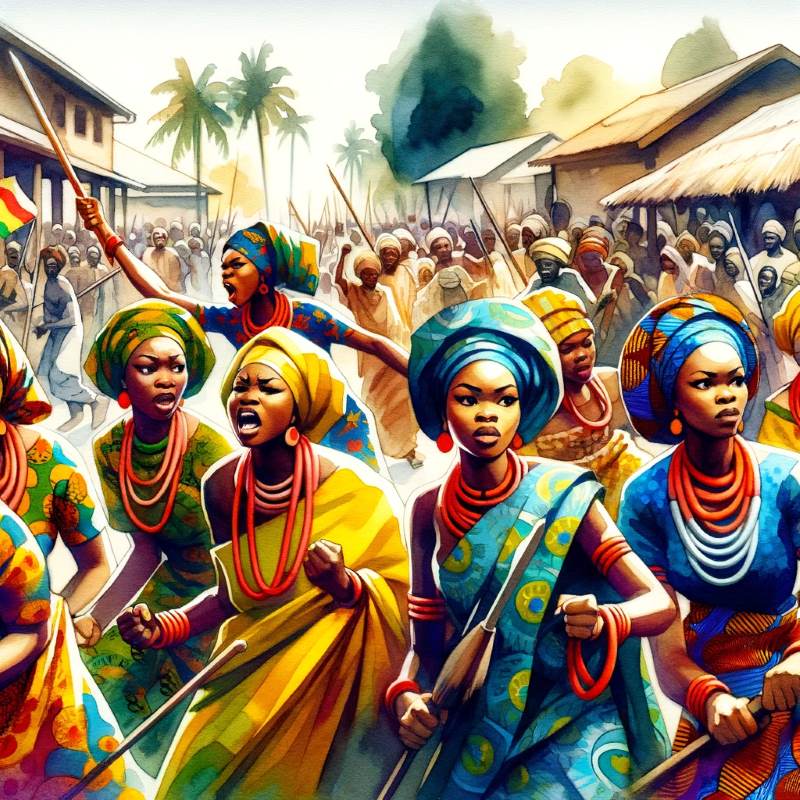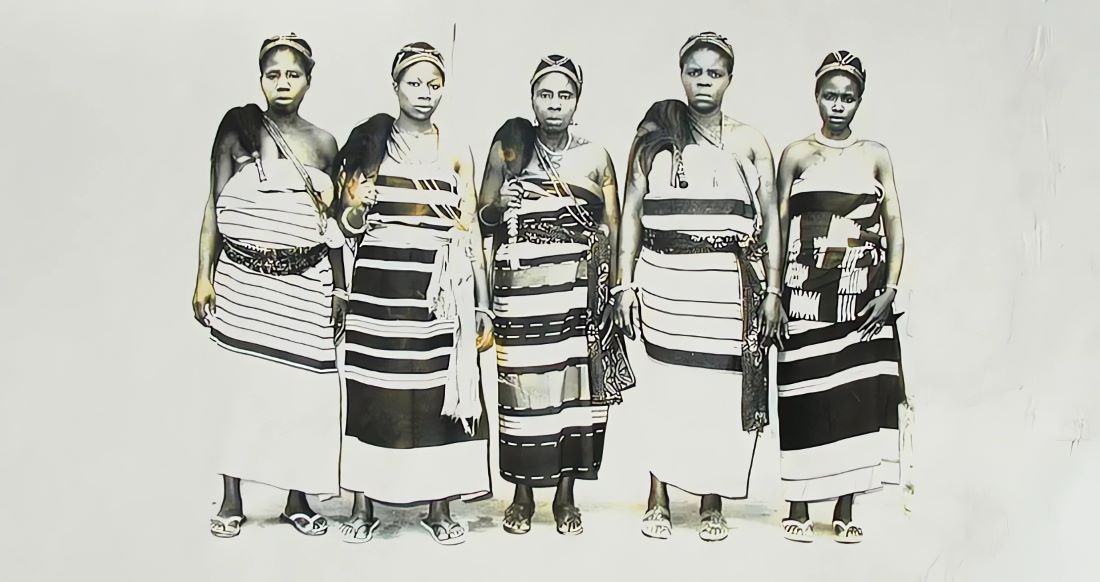The Igbo Women’s War, also known as the Women’s War of 1929, represents a significant event in Nigerian history. This event, which took place in the southeastern part of Nigeria, was a massive uprising of women from the Igbo ethnic group. They protested against the colonial authorities and their policies that threatened their traditional rights and economic well-being.
Background of the Conflict
Prior to the arrival of the British, Igbo society was predominantly matriarchal, with women playing a significant role in community governance. They were integral in decision-making processes, trade, and the social organization of their communities. This societal structure allowed women to enjoy considerable respect and authority, shaping the norms and values of Igbo culture. Their influence extended beyond the domestic sphere, encompassing economic and political realms as well.
However, the advent of British colonial rule profoundly disrupted this balance. The colonial administration, with its patriarchal and Eurocentric viewpoints, failed to recognize the importance of women in Igbo society. The British imposed new systems of taxation and land policies that significantly marginalized women, undermining their economic independence and social status. These policies effectively excluded women from the new political order, disregarding their traditional roles and powers. This disenfranchisement and disregard for established societal norms fueled resentment and laid the groundwork for the eventual uprising known as the Igbo Women’s War. The conflict was not just a reaction to economic policies but also a fierce resistance against the erosion of their cultural identity and societal roles.
Escalation of the Conflict
In November 1929, the situation escalated dramatically when rumors spread that the colonial government planned to introduce a tax on women. This proposed tax was seen as a direct attack on their rights and livelihoods, igniting widespread outrage among the Igbo women. In response, women from various parts of the Igbo region organized massive protests. These demonstrations were not just expressions of anger; they symbolized a profound rejection of the colonial policies that sought to undermine their traditional roles and economic independence.
The women employed a range of tactics during these protests. They converged on government offices, vociferously denouncing the new tax policies, and attacked and vandalized these symbols of colonial authority. One of the most notable forms of protest was the traditional “sitting on a man” tactic, where women publicly shamed and humiliated men who were seen as collaborators with the British. This method of protest was deeply symbolic in Igbo culture, reflecting a traditional form of community censure that women could employ against men who violated social norms. By adopting this practice in their struggle against colonial rule, the women were not only expressing their discontent but also invoking their cultural heritage as a form of resistance.

These actions taken by the Igbo women were unprecedented in their scale and intensity. The protests rapidly spread across the southeastern regions, gaining momentum as more women joined in solidarity. This movement marked a significant moment in the history of colonial resistance in Africa. It was not merely a reaction to economic oppression but also a fight for respect, recognition, and the preservation of their cultural identity in the face of colonial subjugation.
Reaction of the Colonial Authorities
The colonial response to the Igbo Women’s War was marked by a severe and violent crackdown. Faced with what they perceived as a significant threat to their authority, the British forces resorted to the use of deadly force in an attempt to quell the protests. This response was not only disproportionate but also reflected a fundamental misunderstanding of the nature and intent of the women’s actions. The protests, rooted in cultural practices and symbolic gestures, were met with gunfire and military aggression. As a result, hundreds of women tragically lost their lives, turning a movement for rights and recognition into a bloodshed that marred the history of colonial rule in Nigeria.
This brutal suppression of the Igbo Women’s War provoked widespread international condemnation. Reports of the violence and the deaths of unarmed women protesting peacefully brought significant negative attention to British colonial practices. This global outcry, coupled with the realization that their approach had only fueled further resistance, eventually led the British authorities to reconsider their policies in Nigeria. It became clear that the use of force was not only ineffective but also damaging to their standing both locally and internationally. As a result, this tragic event became a catalyst for change, forcing the colonial administration to reevaluate and modify its approach to governance and its treatment of the local populations, particularly regarding the role and rights of women in colonial society.
Legacy of the Igbo Women’s War
The Igbo Women’s War played a pivotal role in shaping modern Nigerian society. This uprising not only highlighted the strength and determination of Igbo women but also led to a reevaluation of colonial policies by the British. Although it was a tragic event, it also symbolized resistance against injustice and a fight to preserve cultural identity and women’s rights.
Furthermore, the legacy of the Igbo Women’s War extends beyond its immediate impact on colonial policies. It served as an inspiration for future generations, demonstrating the power of collective action in challenging oppression. This event also contributed significantly to the discourse on women’s roles in society, influencing feminist movements not just in Nigeria, but across Africa and beyond, underscoring the importance of women’s voices in the fight for equality and justice.
Historical Challenge: Can You Conquer the Past?
Answer more than 18 questions correctly, and you will win a copy of History Chronicles Magazine Vol 1! Take our interactive history quiz now and put your knowledge to the test!

